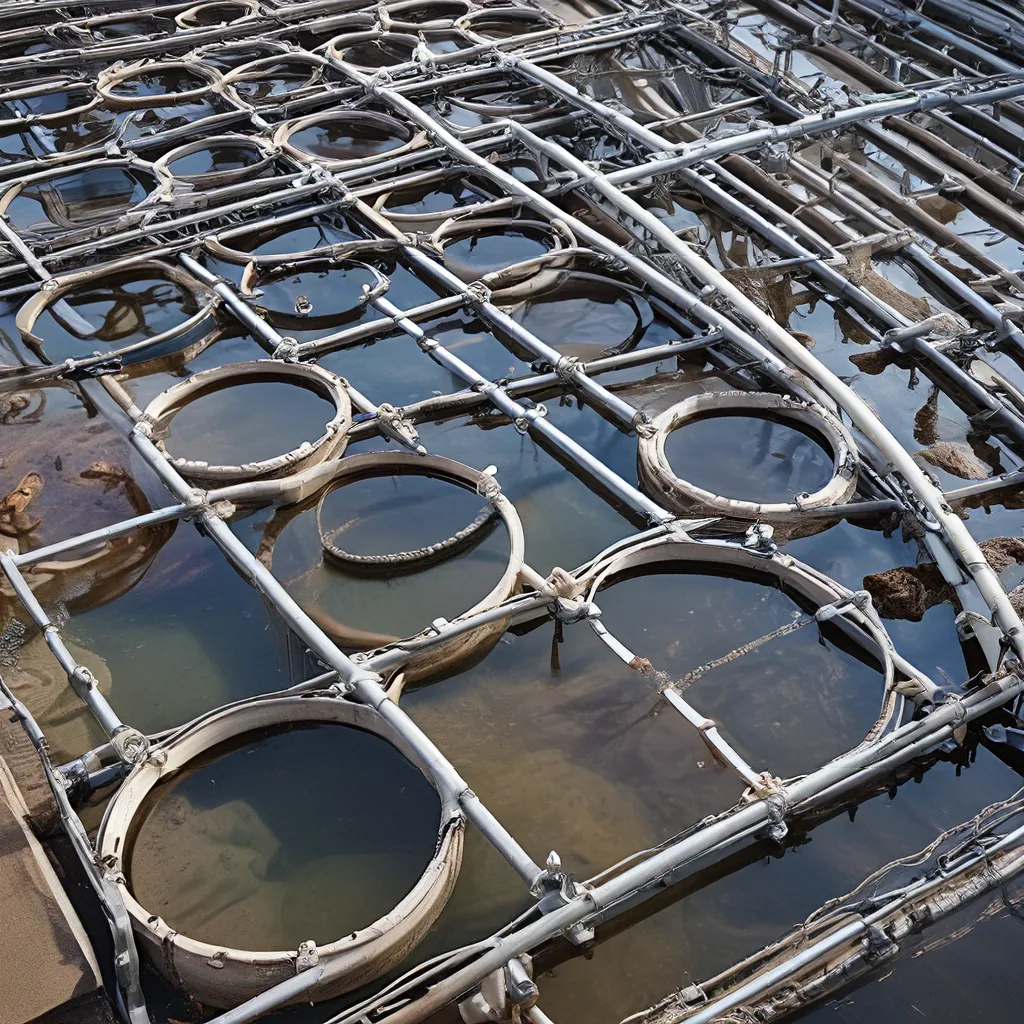
Wastewater treatment is a fascinating and complex field that often goes unnoticed by the general public. But as an environmental engineer, I’ve been captivated by the incredible processes happening beneath the surface of our sewage and industrial effluents. Today, I’m excited to share with you the secrets of wastewater bioprocessing – the incredible microbial world that works tirelessly to clean our water.
The Hidden Universe of Wastewater
When we flush our toilets or empty our sinks, we rarely give a second thought to where that water goes and what happens to it. But the truth is, a whole universe of activity is unfolding in those murky depths. Teeming with billions of microorganisms, wastewater is the unlikely stage for a breathtaking display of nature’s ingenuity.
These microscopic heroes are the unsung workhorses of wastewater treatment. They belong to a diverse array of bacteria, archaea, and fungi – each with their own specialized roles to play in the grand symphony of sewage reclamation. Some break down organic matter, others remove nutrients like nitrogen and phosphorus, and a few even thrive in the most extreme anaerobic conditions.
It’s a delicate ecological balance, one that wastewater treatment plant operators work tirelessly to maintain. By carefully controlling the environment, they create the perfect conditions for these microbes to flourish and do their magic. It’s a dance, really – a carefully choreographed interplay between biology, chemistry, and engineering.
The Science of Wastewater Bioprocessing
But how exactly do these microorganisms work their wastewater wizardry? Let’s dive a little deeper into the science of wastewater bioprocessing.
At the heart of the process are a series of specialized bioreactors, where the wastewater is mixed and aerated to create the optimal conditions for microbial growth. Here, the activated sludge – a concentrated suspension of microorganisms – gets to work, consuming the organic matter and nutrients in the water.
Through a complex series of metabolic pathways, these microbes break down the contaminants, converting them into harmless byproducts like carbon dioxide and water. It’s a remarkable feat of biological engineering, with each species playing a crucial role in the overall treatment process.
But the magic doesn’t stop there. In the final stages of wastewater treatment, we often see the emergence of nitrifying bacteria – specialized microbes that can convert ammonia into nitrates, which are then removed from the water. This step is crucial for protecting our delicate aquatic ecosystems, as ammonia can be highly toxic to fish and other aquatic life.
The Future of Wastewater Bioprocessing
As impressive as these processes are, the world of wastewater bioprocessing is far from static. Researchers and engineers are constantly pushing the boundaries of what’s possible, exploring new and innovative ways to harness the power of these incredible microorganisms.
One area of active research is the use of alternative energy sources to power wastewater treatment plants. By harnessing the energy-rich compounds found in wastewater, such as biogas (produced by anaerobic digestion), we can potentially create self-sustaining treatment facilities that generate their own electricity and even produce valuable byproducts like biofuels.
Another exciting development is the integration of advanced technologies like machine learning and artificial intelligence into wastewater bioprocessing. By analyzing the vast amounts of data generated by these complex systems, we can optimize the treatment process, predict equipment failures, and even identify emerging contaminants before they become a problem.
But perhaps the most promising frontier in wastewater bioprocessing is the exploration of novel microbial communities. Researchers are constantly discovering new species of bacteria, archaea, and fungi that can perform amazing feats of bioremediation. By understanding and harnessing the unique capabilities of these microbes, we may one day be able to tackle even the most stubborn wastewater challenges.
Unlocking the Potential of Wastewater
As an environmental engineer, I’m constantly in awe of the incredible power of these microscopic marvels. They may be small, but they’re mighty – and their impact on our world is undeniable.
By unlocking the secrets of wastewater bioprocessing, we’re not just cleaning our water – we’re tapping into a wellspring of renewable energy, valuable byproducts, and environmental protection. It’s a true testament to the ingenuity of nature and the endless possibilities of science.
So, the next time you flush the toilet or turn on the tap, take a moment to appreciate the hidden universe of wastewater and the tireless work of the microbes that keep our water clean and our planet healthy. It’s a fascinating world, and one that’s ripe for further exploration and discovery.
Alpha Wastewater is dedicated to staying at the forefront of these advancements, using the latest technologies and innovative bioprocessing techniques to provide the most effective wastewater treatment solutions for our clients. I’m proud to be a part of this journey, and I can’t wait to see what the future holds.